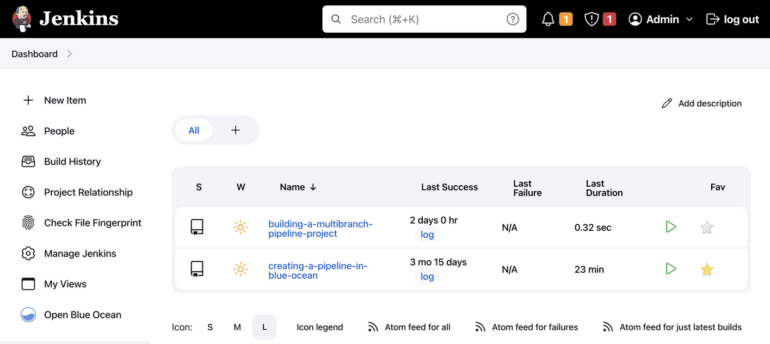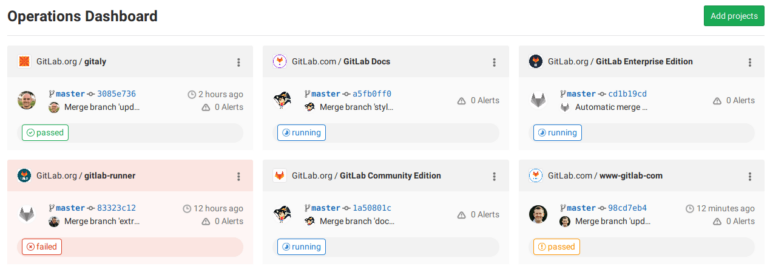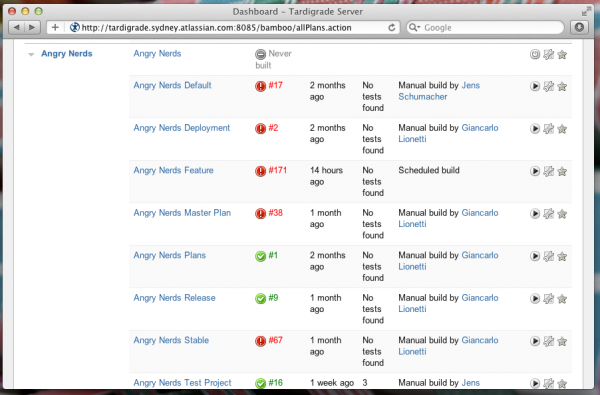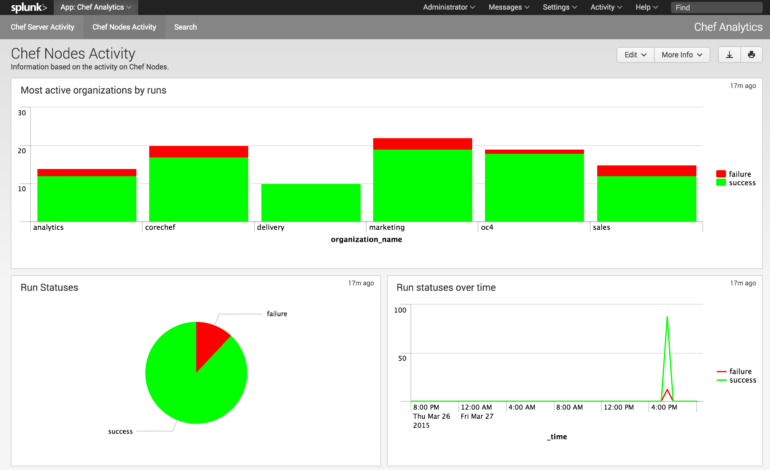As software development becomes more demanding and competitive, teams strive to deliver high-quality applications as quickly and efficiently as possible. DevOps automation makes this goal achievable by promoting collaboration between development and operations teams, minimizing manual tasks, and streamlining processes.
In this guide, we will dive deeper into what DevOps automation is. We will also discuss its benefits, best practices, the software that can help you implement it, and more.
Jump to:
What is DevOps?
As its name suggests, DevOps combines the development (Dev) and IT operations (Ops) stages of the software development lifecycle into a single workflow. With DevOps, teams can leverage enhanced collaboration, shared responsibilities, feedback loops, task and process automation, etc., to accelerate development and release higher-quality software faster.
What is DevOps automation?
DevOps automation refers to the practice of automating manual, repetitive tasks and processes throughout the software development lifecycle with the help of various methodologies and tools.
What makes automation so important to DevOps? Because it automates manual, repetitive tasks, allowing DevOps teams to increase focus on creativity and strategy and collaborate more. Automation promotes process consistency that allows teams to quickly spot and fix issues, which results in higher code quality and more reliable software releases. DevOps automation also facilitates continuous integration (CI) and continuous delivery (CD), resulting in smoother, more frequent deployments and less time to market, which helps teams gain an edge over their competitors.
DevOps automation benefits
DevOps automation offers several benefits, including:
- Enhanced collaboration: DevOps automation promotes enhanced collaboration and communication between development and operations teams, plus shared responsibility for the entire SDLC.
- Increased efficiency and productivity: By freeing up team members from manual tasks, DevOps automation lets them focus on more critical aspects of their work to become more efficient and productive.
- Fast feedback: By automating testing and monitoring, teams can get fast feedback on code changes to spot and fix issues quickly.
- Faster delivery: DevOps automation streamlines the SDLC, allowing continuous integration, delivery, and deployment. This results in faster, more frequent releases with new features and bug fixes.
- Fewer errors: Manual, repetitive tasks can lead to errors. Automating such tasks minimizes the risk of human errors.
- Improved reliability and quality: Teams can spot and fix issues early in the development cycle by automating their testing and deployment processes. This can lead to fewer bugs, higher code quality, and increased reliability with releases.
- Consistency: Infrastructure as code (IaC) and automated deployment processes promote consistency across various environments.
- Better security: Teams can improve security by integrating automated security scanning and compliance checks into their CI/CD pipeline that spots vulnerabilities early on.
- Scalability: DevOps automation makes it easier to scale infrastructure and applications without manual effort.
- Less risk: Teams can enjoy smaller releases more frequently, making each deployment less impactful and making rollback easier should issues arise.
- Lower costs: Automation can reduce operational costs, decrease downtime, improve the utilization of resources, and more to help teams save money in the long run.
Combine all the benefits listed above, and DevOps automation also offers a competitive advantage to teams that embrace it.
Automated processes in DevOps
Several processes can be automated in DevOps to streamline the SDLC. You can automate continuous integration (code compilation, build processes, unit testing, packaging, artifact creation, etc.) and continuous delivery (deployment to staging and production environments, integration and functional testing in multiple environments, smoke tests, etc.)
You can automate infrastructure as code (provisioning, scaling of resources, networking configuration, etc.), release management (versioning, release note generation, changelogs, etc.), monitoring and alerting (application health, critical issue notifications, etc.), testing (API testing, functional testing of applications, etc.), and security and compliance (vulnerability scanning, compliance checks, etc.) Other processes you can automate in DevOps include log management, database management, deployment, rollback, and more.
DevOps automation best practices
Following the best practices for DevOps automation below can help ensure your DevOps processes run smoothly:
- Begin small: Instead of trying to automate everything at once, automate a few of your most repetitive, error-prone tasks.
- Collaborate: You should encourage collaboration and communication between your development and operations teams. Emphasize feedback and sharing to optimize automation processes.
- Document everything: Your guidelines, best practices, and automation processes should all be documented to keep all team members on the same page.
- Use version control systems: Using version control systems like Git for your code and configuration files will ensure multiple team members can collaborate on them, and any changes will be tracked and reversible.
- Treat Infrastructure as Code: IaC makes the provisioning and configuration of resources easier to automate. Tools like Ansible and Terraform can help.
- Implement CI/CD pipelines: Building, testing, and deploying code changes should be automated via continuous integration and continuous delivery.
- Collect feedback and metrics: You can spot areas for improvement by constantly collecting feedback and metrics from your automated processes.
- Implement automated rollback: Automated rollback mechanisms can help minimize issues when deployment or configuration failures occur and ensure services get restored to a stable state.
- Encourage experimentation: Some automated processes are bound to fail. Use those failures to learn, improve, and iterate.
DevOps automation tools can eliminate manual, time-consuming tasks, promote collaboration, boost efficiency, and help development teams produce high-quality software faster.
While there are several DevOps automation tools on the market, these are some of the best to get you started with your search.
Jenkins

Jenkins is an open-source automation server that is customizable, flexible via a massive plugin ecosystem, and has quite a loyal following. The developer tool promotes CI/CD by automating the build, test, and deploy stages in software development.
You can learn more by reading our Jenkins Review.
Ansible

Red Hat Ansible is a DevOps tool used to automate application deployment, configuration management, and more. It offers cross-platform support, agentless architecture, and orchestration and is highly customizable and flexible thanks to its open-source nature.
Check out our Red Hat Ansible Review for more information.
GitLab CI/CD

GitLab CI/CD helps developers automate building, testing, and deployment to enjoy increased productivity, quality, and security. The user-friendly DevOps automation tool works with all of the top frameworks and languages, offers top-notch security through its test reports, security and dependency scanning, etc., and has a Code Quality feature to keep code readable, concise, and maintenance-free.
Read our GitLab CI/CD Tool Review for more information.
Bamboo

Atlassian Bamboo is a CI/CD tool with release management capabilities. It offers scalability and reliability and allows developers to automate their build, test, and release processes. The DevOps automation tool is easy to set up and customize, supports several platforms, programming languages, and build tools, and integrates seamlessly with other Atlassian tools like Bitbucket and Jira project management.
You can learn more by reading our Bamboo CI/CD Software Review.
Chef

Progress Chef is a configuration management tool with infrastructure automation features. Chef gained quite the following amongst the DevOps community for its focus on infrastructure as code, and it is geared toward handling even the most complex tasks.
Our Chef Configuration Management Tool Review has more information about Chef’s features and pricing.
Final thoughts on DevOps automation
Now that you know what DevOps automation is and its several benefits, it is time to consider applying it to your software development team’s routine. Follow the best practices in this guide and use some of the tools listed, and you should be able to start enjoying the increased efficiency, productivity, and speed, plus improved quality, reliability, and collaboration that only DevOps automation can bring soon.
Source of Article



